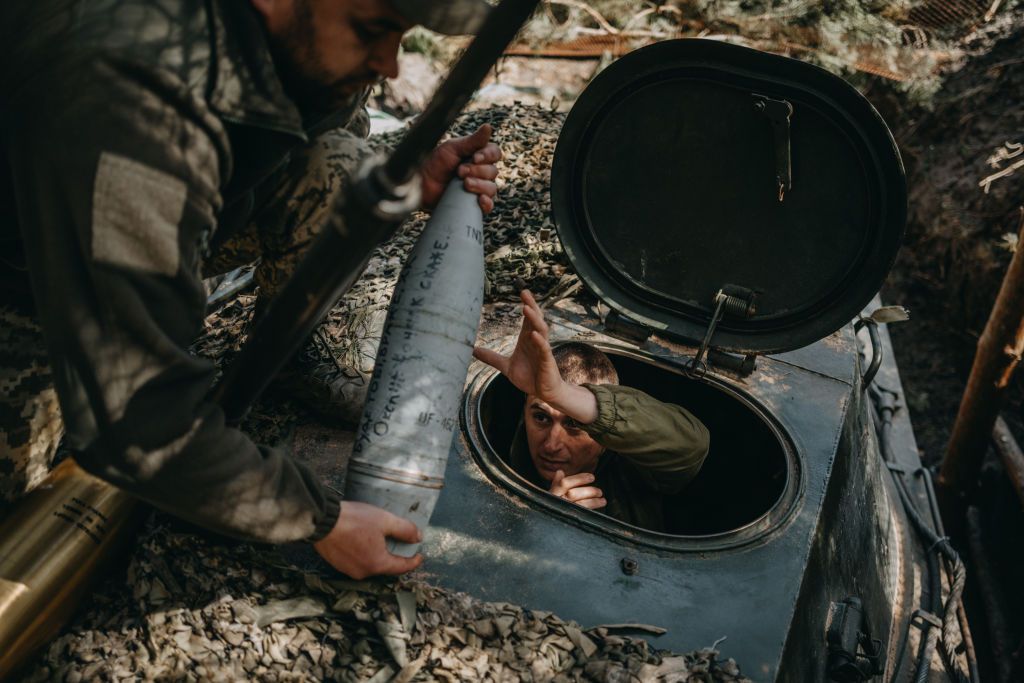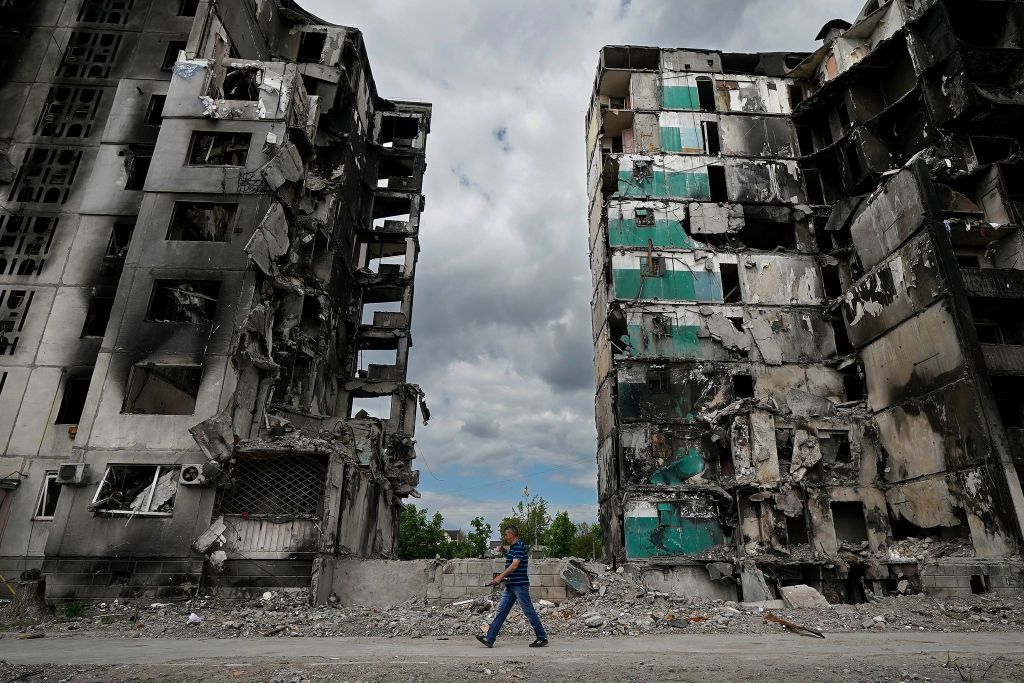The Counteroffensive: Inside Ukraine's prisoner of war negotiations with Russia

Ukrainian military personnel hold placards at a rally in Kyiv, Ukraine, on Jan. 21, 2024, calling for the release of members of Ukraine's Azov Brigade from Russian captivity. (Sergei Supinsky/AFP via Getty Images)

Alessandra Hay
Reporter at The Counteroffensive
Editor’s Note: This article was published by the twice-weekly newsletter “The Counteroffensive with Tim Mak” on May 12, 2024, and has been re-published by the Kyiv Independent with permission. To subscribe to "The Counteroffensive," click here.

Prisoner negotiations between Ukraine and Russia are one of the many things obscured by the fog of war. Even the wives of prisoners of war (POWs) don't find out their husbands are being freed until they are on Ukrainian soil.
One woman attended these prisoner exchanges while her husband was in Russian captivity – if only in an attempt to get closer to what he must have been feeling. The woman, who asked to remain anonymous, said that POWs are given food as soon as they arrive back in Ukraine. She said one can't really communicate with them until they've eaten. When the prisoners are released, they can be broken.
“There was a Ukrainian soldier who was given a chocolate bar… I watched him unwrap it, hold it to his face, close his eyes, and slowly breathe in the smell,” she said quietly, looking down at her feet and shaking her head. “It still gives me goosebumps thinking about it.”
The woman received a call a few months later from Ukraine's Coordination Headquarters for the Treatment of Prisoners of War. She was told that her husband had been returned. But not everybody is so lucky.
After a few days of silence from her husband, Serhii, Maria feared the worst. Serhii, who defended Ukraine’s last stronghold in now-occupied Mariupol, the Azovstal steelworks plant, was captured in May 2022. He is one of the over 900 soldiers with Ukraine’s Azov Brigade still held captive in Russia.
“It has been more than a year and I still don’t know anything about him or his whereabouts,” she told The Counteroffensive.
With Russia’s full-scale war against Ukraine in its third year, possibly the only cooperation between the two countries is done by a special group within the Coordinating Headquarters tasked with negotiating prisoner exchanges. Ukraine and Russia have undertaken over 50 prisoner swaps since the start of the full-scale war, with a total of over 3,000 POWs returned to Ukraine.
Maria, like the relatives of other Ukrainian POWs in Russian captivity, has no idea if or when her husband will be returned. The inner workings of Ukraine and Russia’s negotiations over prisoner swaps are almost impossible to understand or predict – even to the negotiators.
The Counteroffensive spoke to Konstantinas Rimsa, a hostage negotiations specialist who helped train Ukrainian POW negotiators from 2014 to 2022. Rimsa explained that Russia is very ready to delay and obstruct the POW negotiations.
“They (Russia) know Ukraine has a manpower shortage,” he explained. “And a good percentage of POWs will go back into the fight in Ukraine.”
According to the Coordinating Headquarters' spokesperson Petro Yatsenko, Russia's policy is "not to support us (Ukraine), not to give us any clear information."
Russia also knows that holding onto Ukrainian soldiers causes problems for President Volodymyr Zelensky at home. Yatsenko noted that Russia has been known to tell captives' relatives that, if they go out and protest, their loved ones will be returned – an attempt to spark division.
So when the negotiators are finally across the table from each other, it’s crucial for them to play their cards right. They'll have their opening lines ready, a list of what they're ready to negotiate and what they're not, and a list of what they could negotiate under certain circumstances, according to Rimsa. It's also vital that they do not lie.

“You have to come across as reliable as possible… If you do lie, you have to write it down and keep it as a reminder,” Rimsa emphasized. Just as important as how one prepares for the negotiations are the characters of those taking part.
“You have to have a healthy mind, otherwise you won’t be able to do the job… you can only teach relaxation exercises and breathing exercises. But small psychological techniques won't work if you pick the wrong person,” he explained, adding that, when negotiations can go on for up to 10 hours, stamina and mental fortitude are key.
Rimsa added that there are psychologists stationed outside the room to ensure the negotiator remains calm. The psychologists also use a neurolinguistic programming technique known by the acronym MICE – money, ideology, compromise, ego – to create a character profile of the opposing negotiator.
For example, one side could send in a negotiator that looks "almost identical" to but twice the size of the negotiator on the other side.
While this approach is more often used in hostage rather than POW negotiations, Rimsa said there are always psychological considerations, like why the opposite side might want a given prisoner.
However, Yatsenko noted that it’s almost impossible to find a pattern to understand which soldiers Russia might want to exchange: “Every prisoner swap formula is unique… it's a very difficult, long-term process."
Yatsenko gave the example of a time when Ukraine agreed with Russia to exchange 10 heavily injured Ukrainian POWs. According to him, it would have been beneficial for Russia to return them to Ukraine, given that they would have incurred heavy medical costs. However, Russia instead returned five injured and five uninjured soldiers.
“We have no idea why,” Yatsenko said, shaking his head.
The different categories of those held captive also influences and complicates the exchanges, according to Rimsa. Many captives are civilians – people who got caught in filtration camps in Russian-occupied territory in Ukraine.
He noted that, if Ukraine sets a precedent for exchanging Russian soldiers for Ukrainian civilians, Russia would have an incentive to capture more civilians, which it could very easily do in occupied territory.
With each negotiation being totally different and the result of a unique set of factors, Maria watches these POW exchanges carefully, hoping that one day her husband Serhii will be freed too.
Editor’s Note: The opinions expressed in the op-ed section are those of the authors and do not purport to reflect the views of the Kyiv Independent.











